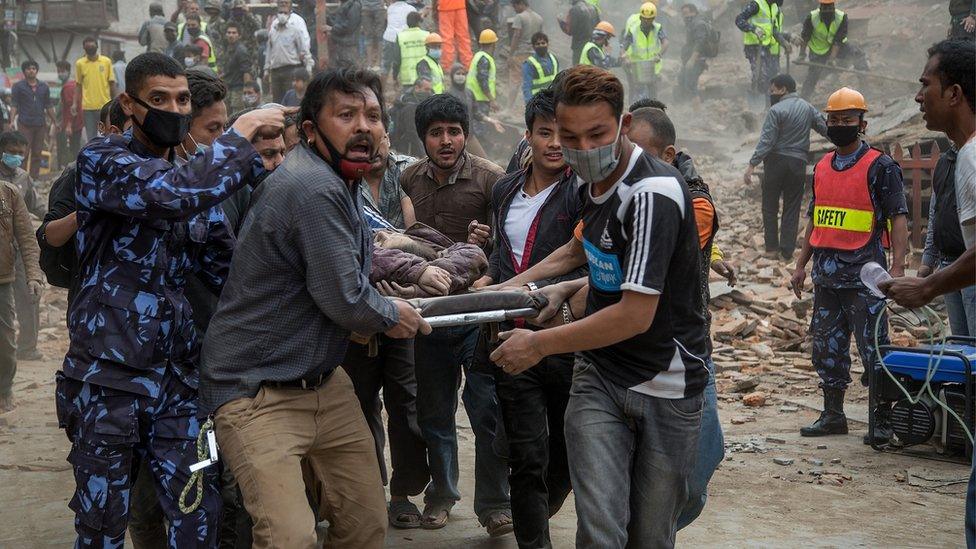Greece-Turkey earthquake: Two killed on island of Kos
- Published
At least two people were killed in the tourist destination of Kos
A strong earthquake in the Aegean Sea has killed at least two people on the Greek island of Kos, officials say.
The 6.7-magnitude quake hit 12km (seven miles) north-east of Kos, near the Turkish coast, with a depth of 10km, the US Geological Survey said.
On Kos, around 115 people were injured, including tourists - 12 of them seriously. Some buildings were damaged.
Turkey's health minister said 358 were hurt in the Turkish city of Bodrum, but none seriously.
The earthquake struck at 01:31 on Friday (22:31 GMT Thursday).
The two deceased have not been named but police said that both victims were tourists - a 22-year-old from Sweden and a 39-year-old from Turkey.
They died when the roof of a popular bar collapsed, police said.
Dozens were wounded when buildings collapsed, some of them suffering broken bones, Kos regional government official Giorgos Halkidios said.
The army is supporting the emergency services with the rescue operation, he added.
Greek authorities said the 12 people seriously injured included tourists from Turkey, Sweden and Norway. Four were taken to Crete for treatment, and three to Athens.
The director of the hospital in Crete told Greek Skai TV that one person was in a critical condition, while a Swedish tourist had lost a leg.
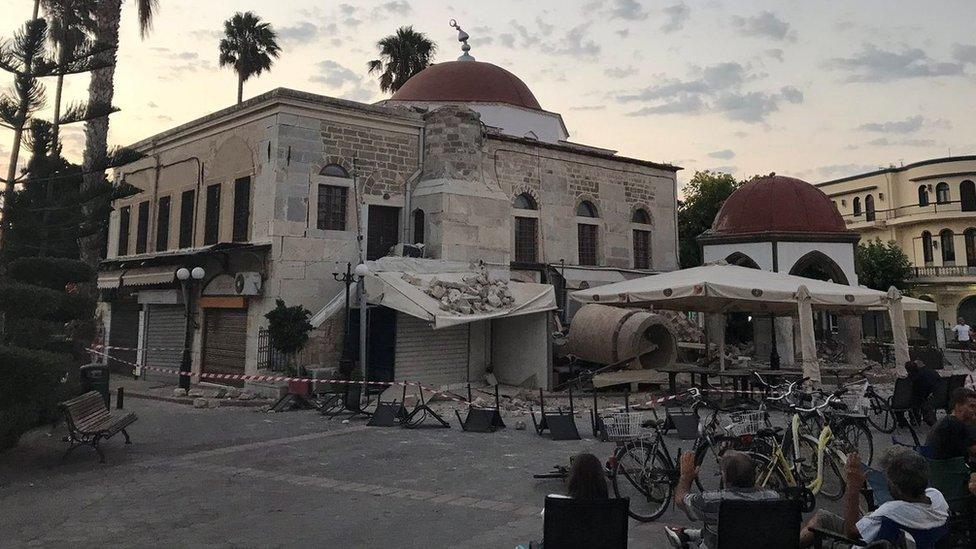
The quake damaged a number of older buildings on the island of Kos
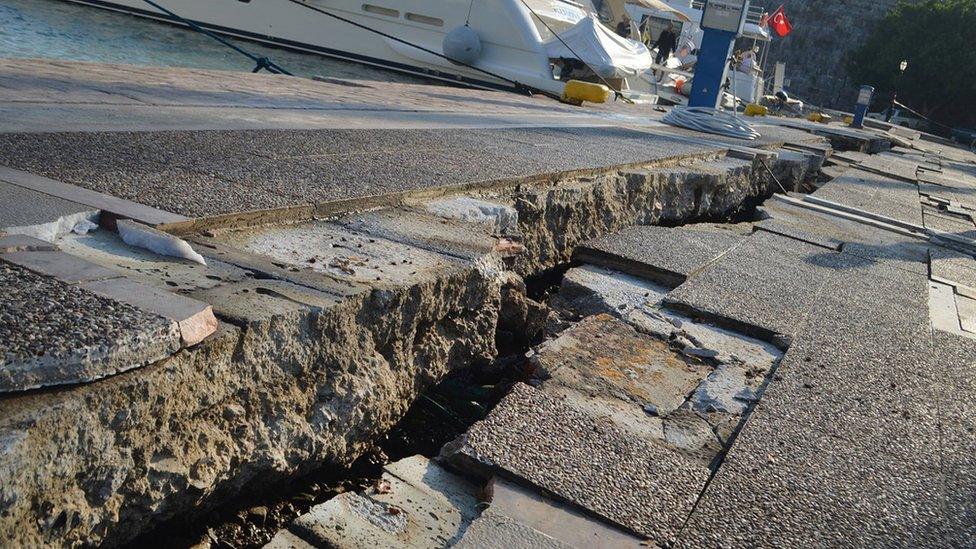
Large cracks appeared on pathways near a port on Kos
The Turkish foreign ministry said a ferry had been sent to evacuate 200 Turkish nationals from Kos back to Bodrum.
Data from Turkey's disaster and emergency management authority, AFAD, showed that more than 40 aftershocks were felt in Turkey and Greece in the aftermath of the quake, some up to magnitude 4.6.
'Everything was shaking'
British student Naomi Ruddock felt the earthquake in Kos, where she is on holiday with her mother.
"We were asleep and we just felt the room shaking. The room moved. Literally everything was moving. And it kind of felt like you were on a boat and it was swaying really fast from side to side, you felt seasick."
Ms Ruddock said that a staff member told her it was the worst earthquake the area had seen.
"All of a sudden it felt like a train was going right through the room," German tourist Vernon Hausman told Reuters.
"I told my son: 'Looks like an earthquake, so let's get the hell out of here.'"
Brits caught in 'terrifying' quake
Kos was nearest to the epicentre of the quake and appeared to be the worst hit, with damage caused to a number of older buildings, including cracked walls and smashed windows.
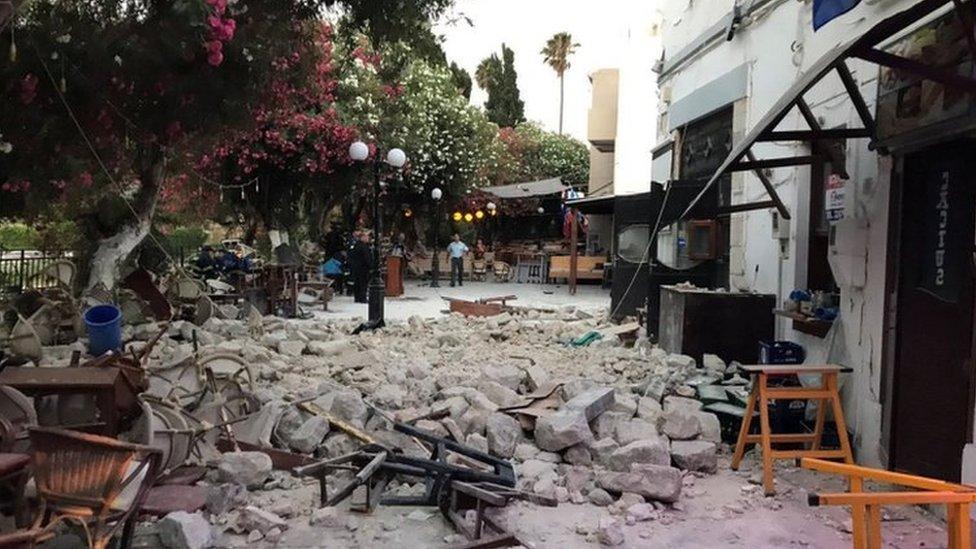
Officials say some of the damaged properties may not have been earthquake-proof
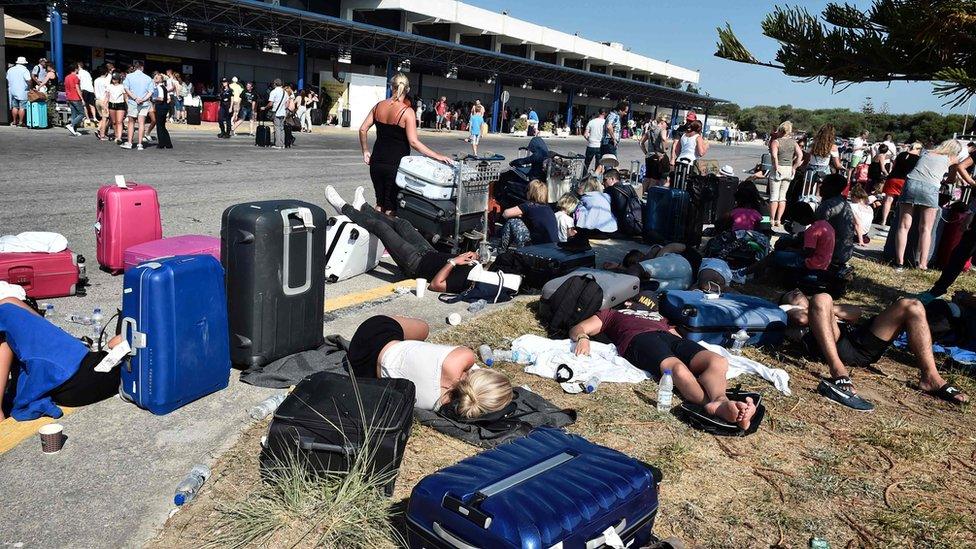
Tourists headed to Kos airport after evacuating hotels and apartments
The mayor said the buildings that suffered the most damage were built before "earthquake building codes" were introduced.
"The rest of the island has no problem. It's only the main town that has a problem," Mayor Giorgos Kyritsis said.
Kos's port was put out of action, and a ferry was unable to dock due to damage at the harbour, Greek police said.
Tourists later gathered outside terminal buildings at Kos airport having left their hotels and apartments.
In Turkey, some witnesses described waking in the night after being violently shaken in their beds.
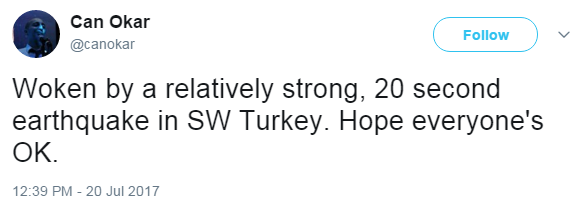
Kristian Stevens, a British tourist in Didim, 90km (60 miles) from Bodrum, said the building he was in began to "shake like a jelly".
Residents fled their homes and tourists ran from holiday apartments with pillows and blankets. Some sustained injuries after jumping from windows in panic, Turkish broadcaster NTV said.
Sophie Wild, another British tourist in Turkey, said she fled her third-floor accommodation in the coastal town of Altinkum, about 40km from Bodrum (as the crow flies), when she woke to a loud banging noise.
"People were running out of rooms, banging on people's doors to make sure they were out," Ms Wild told the Press Association, adding: "Everyone just ran outside."
"It was a lucky escape and it could have been much worse," said Issa Kamara, 38, a personal trainer at the city's Maca Kizi hotel.
At a hospital in Bodrum, the wounded were being treated in the garden as a precaution after the quake caused slight damage to parts of the hospital ceiling, the Hurriyet Daily News reports, external.
The earthquake also triggered high waves off Gumbet, a resort town near Bodrum, which flooded roads and left parked cars stranded, Turkish media report. There were no reports of casualties there.
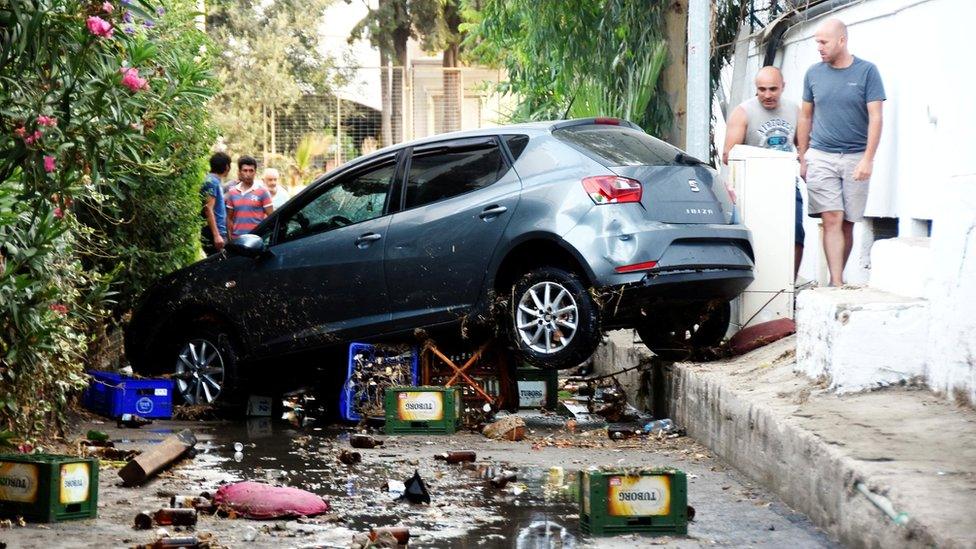
Cars were lifted on to curbs by high waves at the resort town of Gumbet in Turkey
Turkey and Greece sit on significant fault lines and are regularly hit by earthquakes.
One of the deadliest in recent years hit the heavily populated northwest of Turkey, in 1999, killing some 17,000 people.
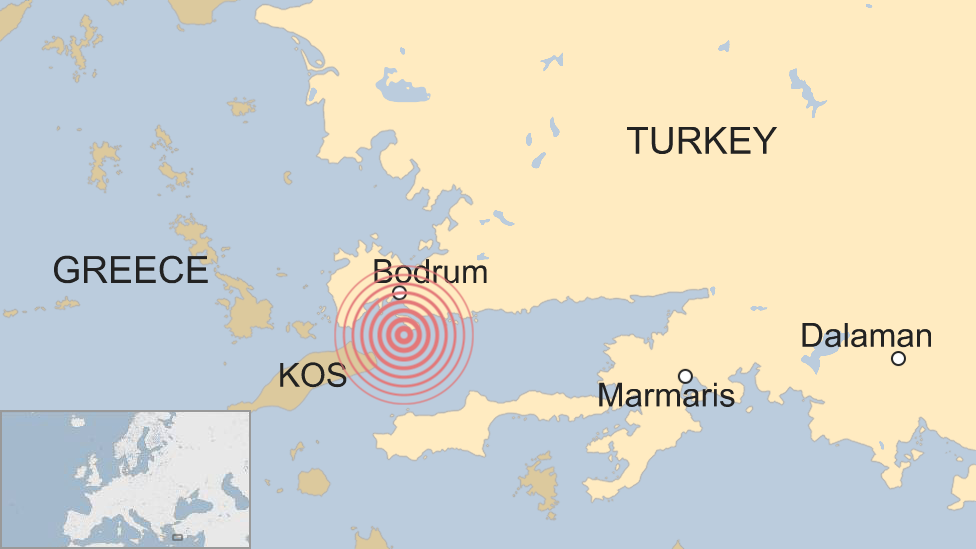
- Published11 May 2011

- Published22 June 2022
